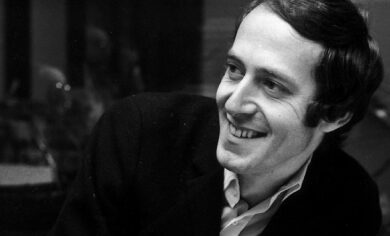As I’m writing this, it’s been brought to my attention that 3 November is the birthdate of one John Barry, or John Barry Prendergast as he was born, in 1933 in York. While his name is most famous for being behind a ton of music for the James Bond films, he was much more than that, writing scores for a variety of genres over 41 years. And while he showed great innovation and style composing for 007 (like his amazing Moog work on On Her Majesty’s Secret Service), he wrote dozens of scores that are equally as good, if not more. Here’s five of them:
THE IPCRESS FILE (1965)
Instantly defined by a wonderful use of cimbalom, Barry’s score for the Len Deighton spy thriller is immediately both laconic and purposeful, with strings full of intrigue while leaving the more cool and casual work to woodwinds and the cimbalom. What’s great is the danger and tension he pulls from the latter instrument, as well as some incredible percussion from woodblocks.
THE LION IN WINTER (1968)
You’d be forgiven for thinking you’ve stumbled onto a horror score when listening to Barry’s score to this historical drama starring Peter O’Toole and Katherine Hepburn, with the main title sounding unerringly similar to Jerry Goldsmith’s ‘Ave Satani’ from The Omen (which came eight years later). It’s not all like that, and it’s a beautiful, bold, and heightened score that won an Oscar for Barry, his third out of five eventual awards.
THE DOVE (1974)
Barry’s score for Charles Jarrott’s biopic about Robin Lee Graham, the young sailor who set out on a voyage to be the youngest person to sail around the world, is an absolute delight with a gorgeous string theme typical of Barry’s career that propels not only the film but the Dove vessel of the title. The score also touches on those portentous thick brass lines, another JB trademark.
KING KONG (1976)
It’s hard to tell who’s more hirsute in John Guillerman’s campy remake of the classic monster movie: Kong himself or Jeff Bridges. Nevertheless, the much-maligned picture is graced with an incredible Barry score, with a powerful motif for Kong and a love theme that’s beautiful and heartbreaking, not to mention the amazing ‘Presentation’, which takes a brilliant disco-esque piece of fluff that smoothly morphs into a big piece of tense score when Kong begins to break his feeble chains.
HOWARD THE DUCK (1986)
No, really. Thomas Dolby was originally supposed to write the score to George Lucas’ infamous fowl folly but it was instead given to Barry, with Dolby writing the songs for in-film pop trio Cherry Bomb. Barry’s score is one-part heroic adventure and one-part noirish jazz, and it works an absolute treat, although the producers didn’t completely agree, bringing in Airwolf composer Sylvester Levay to rescore sections.
Now, onto some new releases…
THE LIGHTHOUSE (Milan)
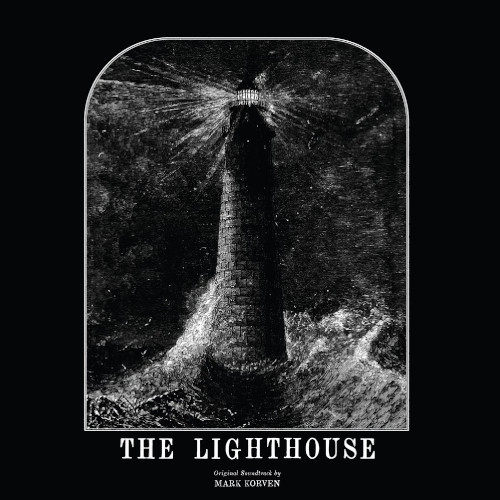
Robert Eggers’ follow up to The Witch, a similarly unique affair about the trials and tribulations of a pair of lighthouse keepers, continues to use the work of Mark Korven, who washes up a darkly evocative work that seems to balance on the edges of sanity, if not beyond. Low strings mimic the swelling and bowing of wood against the sea, while the drones of whales and the seductive sighs of sirens permeate the air, whispers of the water. But this relative calm is soon broken with portentous strings, doom-laden accordion, and penetrating foghorns, all working in tandem to seemingly illustrate a further downward spiral into madness, and what can seem like ambience suddenly reaches out to grab you by the throat. And it doesn’t let go. After The Lighthouse, silence feels unbearable.
MOTHERLESS BROOKLYN (Watertower Music)
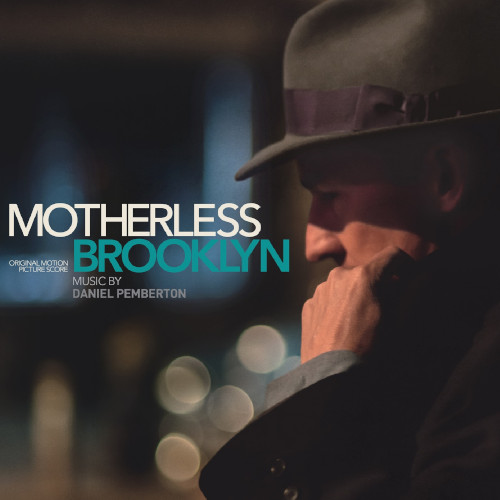
It may feel like a cliche to score a noir film with jazz these days, but Daniel Pemberton’s score to Edward Norton’s late-50s crime tale doesn’t care, and is happy to rip up any notions of lazy choices in your face. The album opens fascinatingly, with what almost feels like an orchestra tuning up as trumpet – with featured player Wynton Marsalis – and saxophone fills the air like smoke, and a malevolent bass motif snakes through almost undetected. From there, the bass continues as dissonant piano enters accompanied by a threatening drum pattern, the whole thing screaming cool danger in the same way Davids Shire and Grusin and Lalo Schifrin did in the ’70s. What follows is a laconic and tense score that brilliantly displays Pemberton’s knack for chameleonically adapting to whatever his subject matter demands.
JOJO RABBIT (Disney)
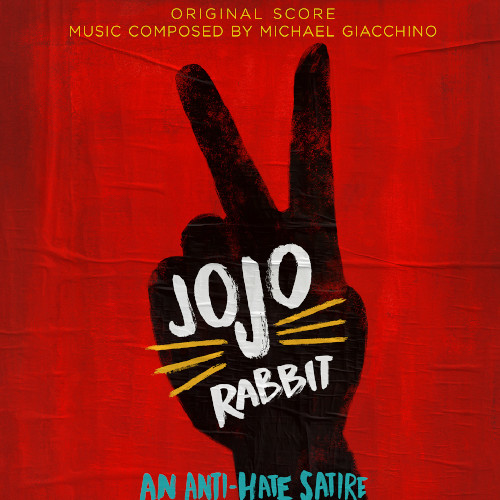
Maybe people didn’t see Michael Giacchino as the right composer for a satire on Nazism with Adolf Hitler as a young child’s imaginary friend, but he immediately kicks off on the right foot (goosestep?) with ‘Jojo’s March’, a hilarious childlike take on the use of children in Nazi propaganda which also sounds like a school orchestra’s take on an Elmer Bernstein march. ‘Jojo’s Theme’ – the same tune as the march – is a wonderfully sweet and innocent piece, sometimes played on woodwind, sometimes on guitar, and it informs the score with a sense of honesty and purity. Giacchino used a 22-piece orchestra, something that’s not the usual for him, and it helps with the intimacy of the score, and I daresay is something he should try more often. Hopefully with fewer Nazis.
SORDO: THE SILENT WAR (Moviescore Media)
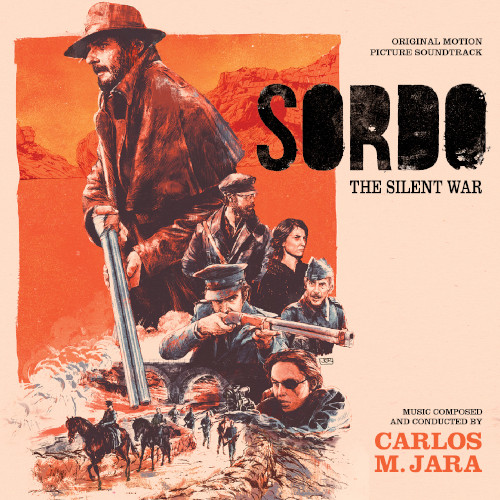
Turning the clock back to the latter days of World War II, Carlos M. Jara’s stirring score accompanies the tale of a desperate plot to overthrow the ruling regime of Spain’s General Franco. The clear inspiration here is Ennio Morricone’s spaghetti western scores, but there’s no direct imitation. Instead, it’s a certain flavour and spice that’s been thrown in the mix. Jara’s score is thrilling, weaving between tense and embattled action pieces and the soulfulness that certainly defined Morricone’s western work, with a fondness for the esoteric sounds that made the composer’s music stand out so much. It’s perhaps unfair to go on about Morricone too much though, as Sordo is a brilliant score that can easily stand on its own four legs.
AD ASTRA (Deutsche Grammaphon)
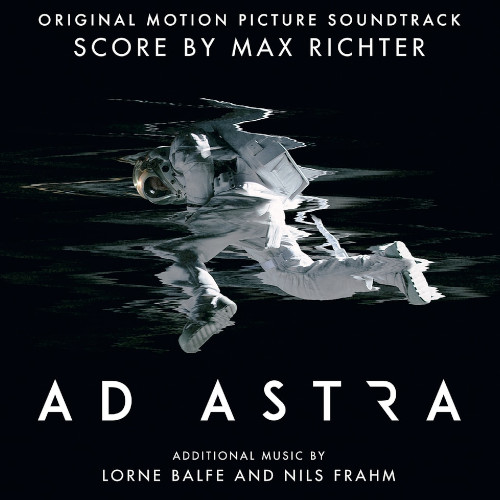
Eyebrows were raised when classical supremo Max Richter was brought on to score the Brad Pitt space adventure, and perhaps lowered a tad when the news filtered through that Lorne Balfe would also be providing music for the film. Thankfully discerning listeners can pick and choose with the album featuring several cues from both composers, as well as Nils Frahm’s ‘Says’, from his 2013 album Spaces. Richter’s music begins in a very Richter way, with a dreamy soundspace as gorgeous as you’d expect from the composer, but is swiftly interrupted by a distorted and pulsating rhythm that is quickly punctured by violent violins that stab their way through the track before returning to the ethereal equilibrium. It’s kind of a signifier as to how Richter’s tracks run, there are dramatic shifts in tone between the leisurely and the fierce and tense, and there are some sawing strings that make you feel like you’re being Penderecki’d to death, but it’s never awkward in its transitions. Everything feels natural and quite beautiful. Balfe’s tracks are pretty good in themselves, he tends to go much more overtly electronic and some sections sound like Daft Punk’s Tron shenanigans, but the problems begin when he tries to match Richter. He goes for a similar mix of dynamics, and while his effort is earnest enough, it just feels a lot more heavy-handed.
DICKINSON (Milan)
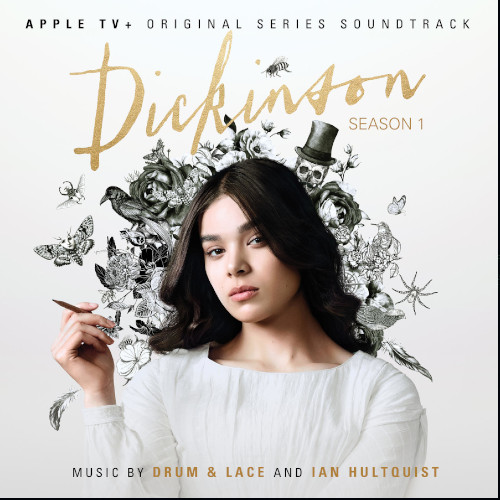
One of the exclusive shows for the new launch of Apple TV, Dickinson is a show about the American poet Emily Dickinson and her life in the 19th century, albeit with a "modern sensibility and tone". To fit this, the show has gone with an anachronistic electronic score by Sofia Hultquist, aka Drum & Lace, and her husband Ian Hultquist. It’s hard to get an instant feel as it begins, with the main title theme being only 24 seconds long, but what it doesn’t have in length it makes up in impact, with fat synths wailing like a siren. What follows is a collection of tunes that range from bouncy feelgood to more purposeful hip-hop, and you wonder perhaps how many of these tracks might do well with a vocalist attached. In the end, it comes off pretty breezy, but because a lot of the tracks are short – there’s only two that aren’t under 2 minutes – it feels episodic, and you might be distracted by that.
VILLA WUNDERBAR (Spoon/Mute)
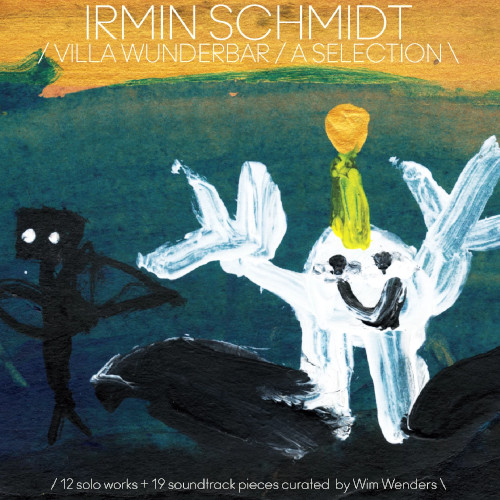
Known primarily as a member of Can, Irmin Schmidt also composed music for many film and TV programmes over the years. Villa Wunderbar is a vinyl reissue of a 2013 CD set that looked at both his solo work and his music for film, with each receiving their own disc. His scores are quite haunting, the description of "a musical alchemist" quite accurate and it’s interesting the way he shifts tones and genres, such as the way the lonely and potent jazz solo in ‘Fresco and Finale’ is quickly overtaken by a burgeoning wind that sounds like it’s made of vocals.
THE BRIDE OF FRANKENSTEIN (La-La Land)

In what feels like a miraculous Halloween gift, the original acetate discs of Franz Waxman’s glorious music from James Whale’s The Bride of Frankenstein have been discovered, and what an absolute treat it is. Waxman’s score has always been a thing of beauty, based around three wonderful thematic devices: a brutal motif for the monster; a sinister and mischievous melody for the brilliant Ernest Thesiger’s Dr Pretorius; a dreamy tune for the Bride herself. Waxman weaves these throughout the score in quite brilliant ways, such as the organ rendition of the Pretorius theme while he has a picnic in a mausoleum, but it’s the big final "creation" sequence that is the culmination of the score, an 11-minute masterpiece. Hate the living, love the dead, and also this fantastic restoration.


